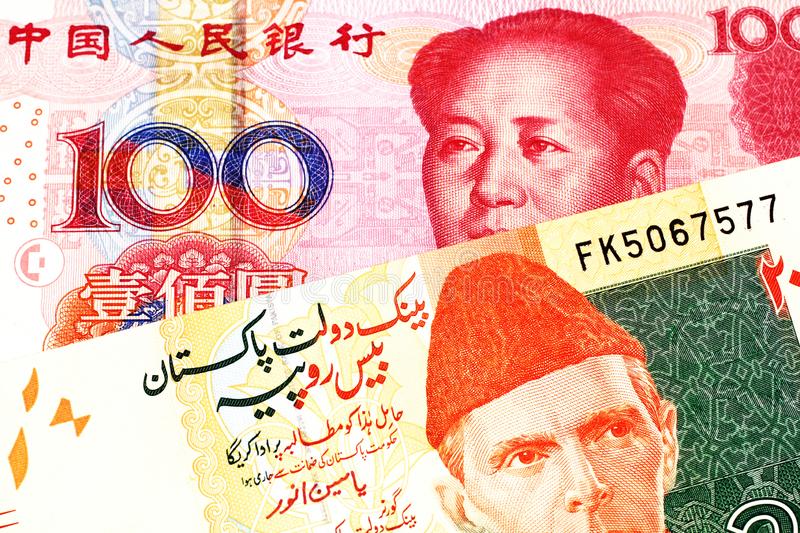Dollar-Rupee volatility: RMB likely to be traded for Gwadar Free Zone enterprises

The government is weighing up an option for CPEC investors especially in Gwadar Free Zone companies to allow them operate in RMB (Chinese Currency) instead of Dollar in order to save them from financial losses being incurred by sheer impact of downward spiral of Pakistani currency against the dollar.
Pakistani rupee dipped to more than Rs 46 against dollar in the last three months. In May, Pakistani currency against the dollar valued at Rs 198. On July 30 (Saturday) it set to cross Rs. 244. As per economic forecast, dollar will continue to appreciate against the rupee. So if the trend keeps mounting, activity in Gwadar free zone, an important part of CPEC, may take a hit.
In a talk with Gwadar Pro, Lio Long Tai, Deputy General Manager of Hang Geng Trade Company Private Limited said that doing business in RMB instead of dollar is direly needed. “Dollar-Rupee fluctuation will leave Chinese investors high and dry,” he added. Elaborating benefits of RMB, he said that regarding Chinese currency preference, there is no loss due to exchange rate fluctuation in RMB transactions.
The matter rose to prominence when COPHCL Chairman Zhang Baozhong briefed Prime Minister Shahbaz Sharif during Federal Steering Committee on Gwadar initiatives on July 6 about perilous concerns that deters Chinese investment in Gwadar relating to currency devaluation. He requested that Chinese investors be allowed to maintain accounts in RMB in Gwadar Free Zone without getting their invested money converted into Rupees.
Prime Minister directed Finance Minister and Governor SBP to meet Chairman, COPHCL, and try to resolve the matter on priority. He also desired a report in this matter at the earliest.
In the recent past, Pakistan and China had been making a deal in Renminbi (RMB) and Pakistani Rupees (PKR) as Pakistan faces financial challenges. Federal Minister for Board of Investment (BOI) Chaudhry Salik Hussain said that the issue will soon to be fixed.
Earlier, Prime Minister Shehbaz Sharif directed the State Bank of Pakistan (SBP) to convene meetings with the Industrial and Commercial Bank of China (ICBC) and Bank of China for the use of RMB/PKR for bilateral trade between China and Pakistan.
Prime Minister Shehbaz gave the instructions to SBP during a meeting with the Chinese businessmen held on May 30 this year. RMB is the official currency of China and one of the world’s reserve currencies. It is also the eighth most traded currency in the world. For the promotion of trade in the Chinese currency, a pilot project encompassing the introduction of ‘RMB pricing’ will be introduced in the first phase. In the second phase, RMB settlement and financing policies will be focused on. The exchange rate for the currencies of both countries will be set in the China Foreign Exchange Trading System (CFETS) and in authorized banks declared as cross-border currency markets in China and Pakistan, according to the official details.
Economist Shahid Hussain said that using RMB instead of dollar will also be in the benefits of Pakistan as it will reduce dependency on the dollar and mitigate pressure on the foreign exchange reserves of Pakistan if the swap agreement between Pakistan and China takes effect in adequacy.
The currency swap agreement, signed in 2011 meant to enhance bilateral trade, investment and financial cooperation. Swap of RMB-Rupee minimizes the risk linked with foreign currencies, as well as benefits locking in fixed exchange rates for a longer period. According to the SBP sources, the currency exchange agreement under China-Pakistan Economic Corridor (CPEC) is likely to be extended for bilateral trade. In terms of head-start, SBP has allowed BOC to create a local Chinese yuan settlement and clearing mechanism in Pakistan.
In early 2020, Habib Bank Limited (HBL) came into action as the first Pakistani bank to initiate operations in China. It was welcomed by both the Pakistani and Chinese governments. These measures are part of the SBP’s strategy to increase trade with China in local currencies.


